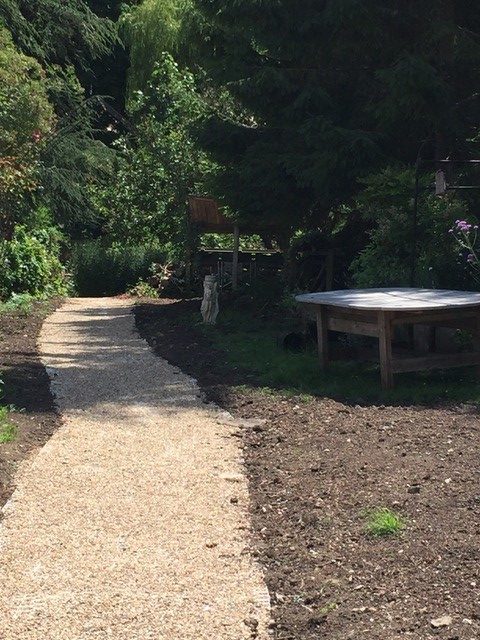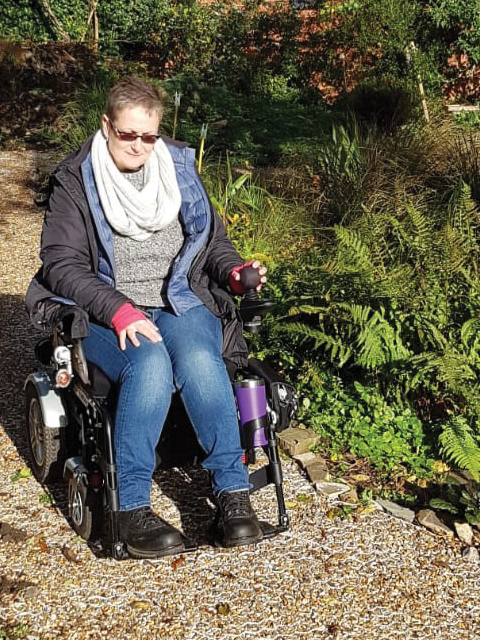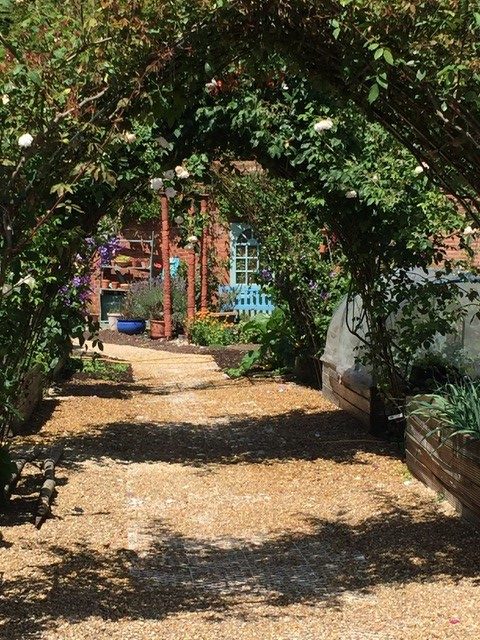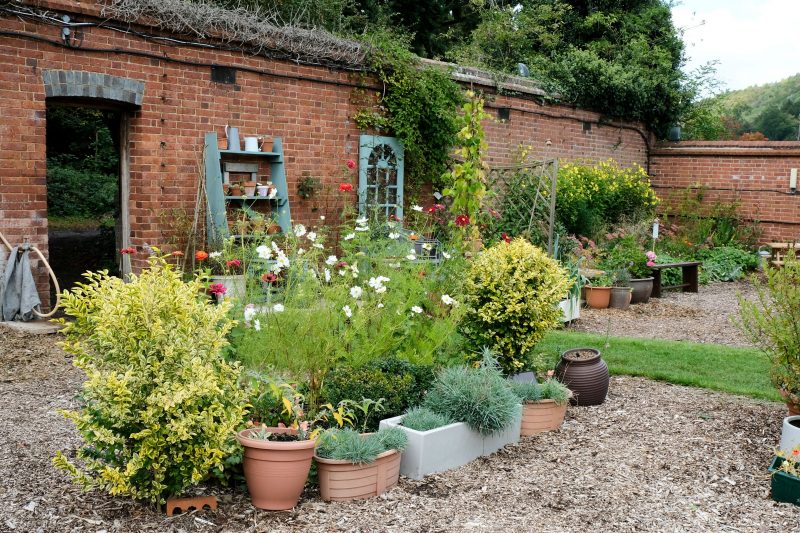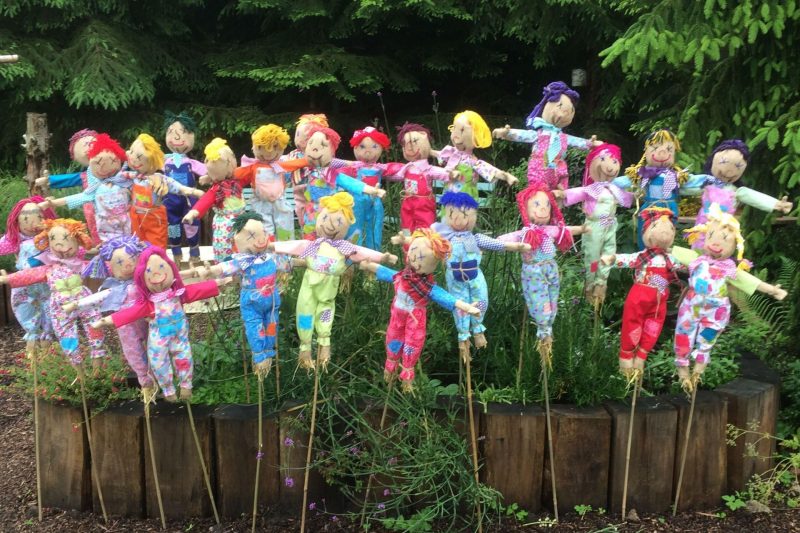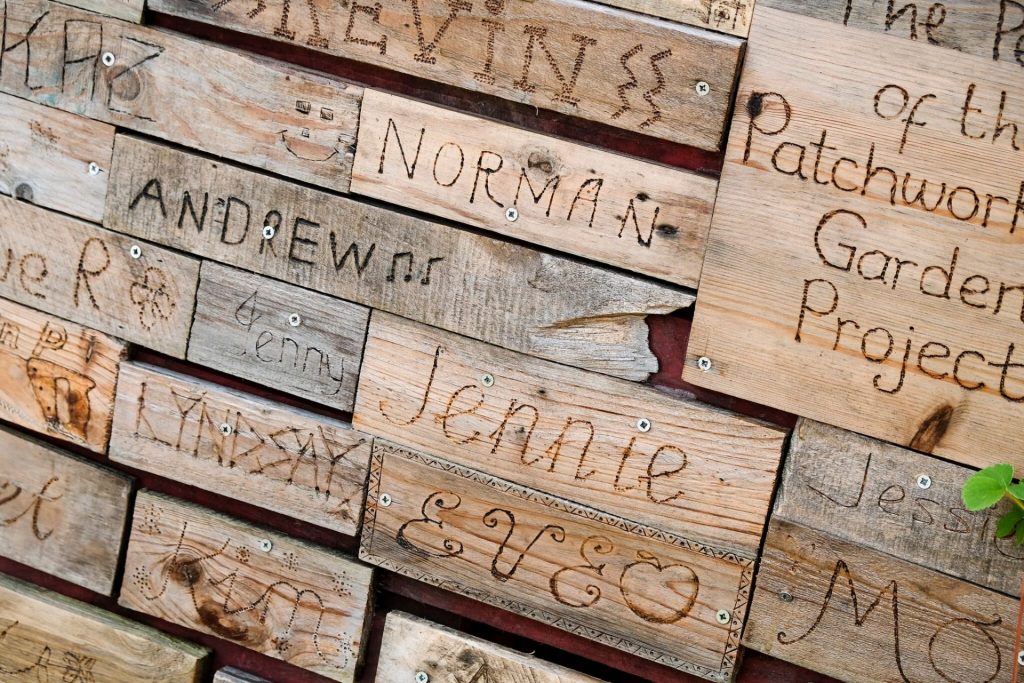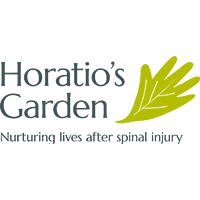Accessibility for all at The Patchworking Garden Project

A grant of £20,000 from the National Garden Scheme has helped The Patchworking Garden Project make its outdoor spaces more accessible with the creation of a path completed during the first lockdown in 2020. Established in 2014 to bring positive change to people’s lives through the benefits of friendship and gardening, one supported volunteer, Sarah-Jane Grace, shares the impact that the new path has had on her life.
There is a profound sense of loneliness when living with chronic illness, both with physical disability and mental health issues. The life I thought I’d have dried up and withered away. My life stood still many years ago. Doing ‘normal’ in a wheelchair just isn’t possible for many things as the world isn’t built for wheelchairs. So, being in a wheelchair requires a willingness to accept the fact that the world isn’t accommodating for someone like me.
But, I’ve been going to the Patchworking Garden for about eighteen months and I’ve felt so welcomed and comfortable. Everyone is so accepting and so friendly, and it became a little oasis of connection in a life of medicalisation and isolation. It’s as though the walls block out the humdrum buzz of everyday life so for those few hours each week I become me again. It’s an oasis and sanctuary, a place where I don’t have to ‘be’ anyone or do anything in particular, I can just enjoy the space, the company and the camaraderie.
- Work in progress
- Sarah-Jane using the new path
- Access to a special place
Sadly the garden’s paths were very difficult to access in my wheelchair (or even with my walker) so I got used to staying in the first part of the garden, wondering where everyone went in the sessions to weed or dig, trying to imagine what the garden in its entirety looked like. I have a good imagination, but it was hard at times to feel like a part of the group when they were talking about parts of the garden I hadn’t even seen.
Although I loved being at the garden, I had to push myself through my pain and dysfunction to make it to the group area as the paths were so difficult to navigate. When the garden closed for the first lockdown I felt my world becoming smaller once again as the weekly connection faded away. So, when the news came that the garden was re-opening I felt a sense of excitement tinged with trepidation as I was using my wheelchair even more and wondered how I would manage moving round the garden.
In many ways, returning from the spring lockdown was the start of a new chapter for me. I arrived in my powered wheelchair and I rolled through the magic wooden gate into the garden where, for the first time, I was able to freely explore the whole garden! The new path gently meandered through the middle of the garden and it felt like a welcoming hug as I no longer had to struggle, get flustered or manage more pain just to make it to the covered area for tea and coffee. I felt truly liberated to be able to do a complete tour of the garden, to zig zag around the paths and to see the hard work put in by so many. In many ways, it felt like it was my first visit as I meandered around the paths seeing the different areas I’d only previously been able to imagine. It was as though I was seeing the garden with fresh eyes as every flower, every bee and every sound was magnified and vibrant. For the first time, I felt like I truly belonged. The experience was so uplifting, I carried the joy with me for days afterwards!
Since the path has been laid I’ve felt excited to roll through that magic wooden gate as the garden is still a place of novel wonder for me. Being able to sit in different parts of the garden, I’ve had the opportunity to start appreciating the little things once again, which are actually great big things, from listening to the birds singing in the garden, watching the flowers sway in the breeze and resting more consciously in the moment. I’m able to relax, to laugh and to finally feel a part of such a special place…
- A place of sanctuary …
- creativity …
- and acceptance
For more about the National Garden Scheme’s Gardens and Health programme click here
For more on The Patchworking Garden Project click here
This story first appeared in out Impact Report 2020 click here to read it




